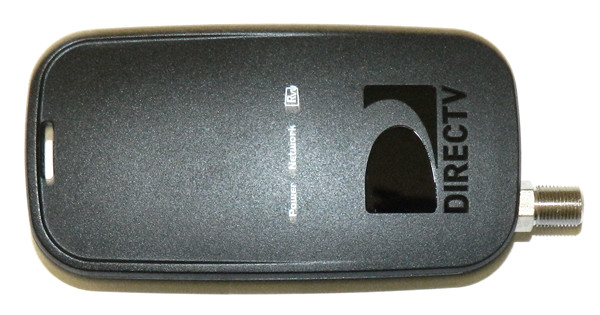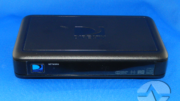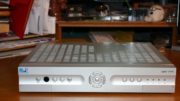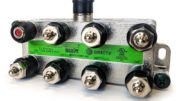A few weeks ago, a blog reader reached out to me to ask if there was a grounded power supply for the DECAs that we sell. A DECA, in case you’re not familiar, is a device that bridges the coaxial cable network used by DIRECTV and others with an Ethernet network. It’s a common part of practically every pay-TV system in one way or another.
DIRECTV DECAs get power from the EPS10 power supply. This is DIRECTV’s “go-to” power supply for practically every one of its products. It’s simple and reliable. But, it’s a two-prong power supply. It has no ground lug to it. What if you wanted a grounded power supply?
The answer I gave the reader is simple. DIRECTV doesn’t make a grounded power supply for the DECA but you could absolutely find a replacement and use it. Any power supply that puts out 12 volts and more than 1.5 amps will work. Most power supplies I’ve found don’t have grounding unless they are able to supply 6 amps or more. It’s ok to use a power supply rated for more amps than you need because the DECA will only pull maximum 1.5 amps no matter what.
The challenge would be finding the right connector. DIRECTV products use a fairly non-standard connector for power. I suspect it was done on purpose so you wouldn’t accidentally plug in the wrong power supply. But it does mean it can be a challenge to find the right connector. If you don’t mind sacrificing an EPS10 power supply you can cut the end off it and solder it to any power supply. Or, you can get a universal power supply with a bunch of different ends and hope one works.
Why aren’t these power supplies grounded?
I’ll admit, I don’t have a line to the people who spec’d or built these power supplies so I don’t have a “definitive” answer. But there are three possibilities that come to mind, and so I’ll share those and let you decide which you think is the most likely.
1. The current is so low that it’s not a big deal
In the United States, we tend not to use grounded power cords for low-wattage devices. Even lamps that have the potential to draw 100 watts don’t usually have grounded cords. In the case of the DECA, you’re drawing 18 watts at most. Grounded cords prevent dangerous electrical buildups, that’s their point. But realistically, a DECA is very unlikely to have enough current to cause anyone any problem.
2. The Ethernet network is probably grounded anyway
If you’re using commercial-grade equipment, the network switches themselves are grounded or bonded to the building’s ground system. As a general rule if you ground one part of a system, every metal thing within that system is considered grounded. So again there’s no danger because the whole system is safe.
3. Maybe there’s some concern about interference
A lot of audio and video equipment either isn’t grounded or has ground lifting within it in order to keep any noise inherent in the power cable from interfering with sound or video. Having spent a lot of time in the world of commercial audio, I always carried a ground lift with me in case I heard that telltale 60Hz hum. I admitted here that it wasn’t necessarily the safest idea, though. Commercial audio systems can draw 1,000 watts or more and that poses a significant danger. On the other hand, that DECA doesn’t pose anywhere near that amount of danger. It’s generally safe to operate without a grounded cord. If the lack of grounding makes the audio and video more stable, that’s a net win.
If you need grounding…
There are going to be commercial and industrial installations that require every single item be individually grounded. I get that. In that case you can try to find the right power supply, or you could theoretically open up the EPS10 and run a wire from the ground plane to a ground lug. The EPS10 is considered an owned accessory so you don’t have to worry about DIRECTV complaining if you open it up. On the other hand, it becomes your responsibility to make sure it’s working right.
If you’re looking for DIRECTV accessories, shop the great selection at Solid Signal. If you want the best advice, call the experts at 888-233-7563 or fill out the form below.





